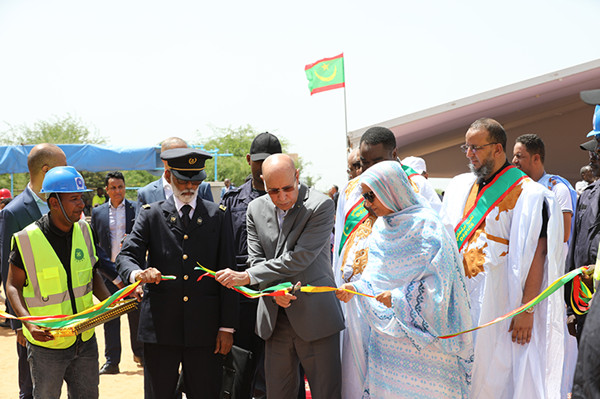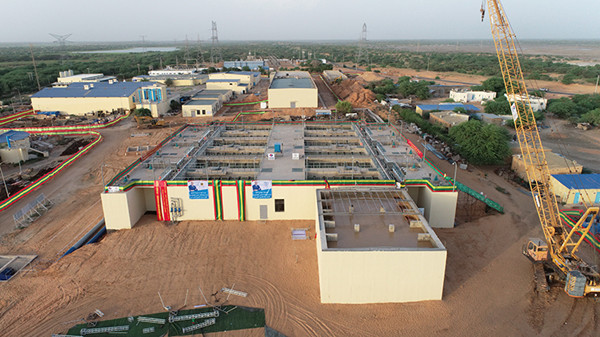
The President of Mauritania attends ribbon-cutting ceremony for the Beni Nadji Raw Water Pretreatment Station Desilting Project.

The Beni Nadji Raw Water Pretreatment Station Desilting Project.
The President of Mauritania, Mr. Mohamed Ould Ghazouani, along with the Chinese Ambassador to Mauritania Mr. Tang Zhongdong attended the project completion ceremony of the Beni Nadji Raw Water Pretreatment Station Desilting Project, built by POWERCHINA.
The ceremony was also attended by key figures, including the Minister of Hydraulics and Sanitation Ms. Amal Mint Maouloud, , and the General Manager of National Water Co. Mr. Abdel Majid Rihah.
Ms. Maouloud has recently warned of increasing sediment levels in the Senegal River, which have affected daily life and productivity in Nouakchott. The Beni Nadji facility is poised to mitigate the city's drinking water shortage, benefiting 1.2 million residents by improving the stability of their water supply.
She commended the project team's dedication and hard work, which allowed the project to be completed in a mere seven months.
Mr. Tang also praised POWERCHINA for its high efficiency, quality, and responsibility, ensuring the timely delivery of this vital project. He reaffirmed China's commitment to strengthening cooperation with Mauritania across various sectors, aiming to transform more projects into beneficial public works that help to bolster Sino-Mauritania relations.
The project comprises high-density sedimentation tanks, a chemical treatment building, connection and drainage pipelines, and administrative and living facilities. The plant's six treatment units feature rapid mixing tanks, flocculation tanks, and sedimentation tanks. The water treatment capacity will increase to 255,000 cubic meters per day, alleviating the drinking water shortage in Nouakchott.
Several advanced technologies were employed in the project, including high-efficiency coagulation-flocculation-inclined plate sedimentation processes, CFD simulation-optimized flow and mixing systems, wear-resistant equipment design, modular prefabrications, and automated aeration cleaning systems.
The project also incorporated extreme climate adaptation designs to ensure stable operation in high-temperature and dusty environments.
The project is expected to reduce the incidence of waterborne diseases by 12,000 cases annually and serve as a replicable technological model for treating high-turbidity raw water in West Africa's arid regions. It delivers substantial social, economic, and environmental benefits, furthering the development and improving the well-being of the Mauritanian people.